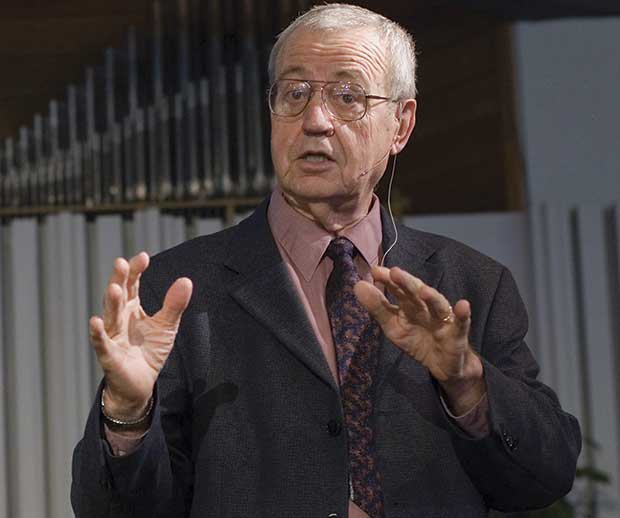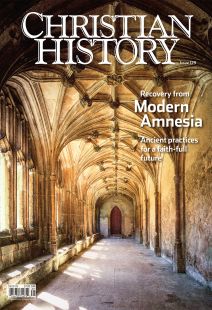Life in God’s Kingdom

[Loren Kerns from USA [CC BY 2.0 (https://creativecommons.org/licenses/by/2.0)], via Wikimedia Commons]
AND SO in the early 1970s, I began to teach the disciplines, at first with a little hesitation and concern about what the response would be. At that time, I was intermittently teaching in several Protestant churches of various denominations. All of them had in common a firmly entrenched tradition of scorn for “ascetic” practices such as solitude, silence, and fasting.
My hearers seemed to have two major concerns about them. They wondered how these specific actions could be done except either as a way of meriting forgiveness or as way of extorting favorable actions from God, but to my surprise they offered no out-and-out resistance to the idea of spiritual disciplines. Just the opposite, in fact. My teaching about them almost universally met with a friendly interest and usually with some attempt to learn how to do the things
discussed. . . .
Our tangible need and hunger for the spiritual disciplines do not by themselves make clear why we need them and how they fit into God’s creative and redemptive action upon and within human life. And above all, they do not show how the practice of the disciplines is to be integrated with the great truth recovered with Protestantism—that we are saved by grace through faith, not by works or merit. It is precisely obscurity and confusion here that led to the abuses of the disciplines [which] history reveals and ultimately to today’s exclusion of them from the mainstream of Protestant religious life.
Prayer not penance
What do I mean? Centuries ago, disciplines such as fasting, service, and giving were confused with meritorious works, as well as with a useless and destructive “penance.” So what resulted was a general failure to understand or accept the wonderful, positive functions of those disciplines as part of the course of the human personality’s full redemption.
We’ve all heard of “cheap grace.” But “cheap grace” as a concept didn’t just come merely from our wanting to have God’s mercy and bounty at bargain basement prices. I believe that the misunderstanding of the spiritual disciplines’ place in life has been responsible for Protestantism’s adopting “cheap grace” as the dominant mode of its recent existence.
So what is needed, then, is a theology of the disciplines for the spiritual life. We need a foundation, a practical, workable theology of them. We must understand why the disciplines are integral to meaningful life in Christ. We must be clear about the essential part they play in the full and effective presentation of the gospel and the truth about life in God’s Kingdom.. . . .
In shaping our own list of spiritual disciplines, we should keep in mind that very few disciplines can be regarded as absolutely indispensable for a healthy spiritual life and work, though some are obviously more important than others. Practicing a range of activities that have proven track records across the centuries will keep us from erring. And if, later, other activities are really more what we need, our progress won’t be seriously hindered, and we’ll probably be led into them. . . .
Let’s list those activities that have had a wide and profitable use among disciples of Christ, and approach them in a prayerful, experimental way.. . . .
Disciplines of Abstinence: solitude, silence, fasting, frugality, chastity, secrecy, sacrifice.
Disciplines of Engagement: study, worship, celebration, service, prayer, fellowship, confession, submission.
By Dallas Willard
[Christian History originally published this article in Christian History Issue #129 in 2019]
—From the book The Spirit of the Disciplines: Understanding How God Changes Lives by Dallas Willard. Copyright© 1988 by Dallas Willard. Reprinted by permission of HarperOne, an imprint of HarperCollins Publishers.Next articles
Christian History Timeline - Responses to Modernity
Attempts to recover the spirit of the first Christians are almost as old as Christianity itself, but we focus here on those that arose in some way as a response to problems of the modern world.
the editorsVatican II: 101
Pope John XXIII convened the Second Vatican Council for the express purpose of addressing the issues of modernity
the editors25 years of talking together
Evangelicals and Catholics seek to work out theological statements both can agree upon
Christian History and Timothy GeorgeSupport us
Christian History Institute (CHI) is a non-profit Pennsylvania corporation founded in 1982. Your donations support the continuation of this ministry
Donate






